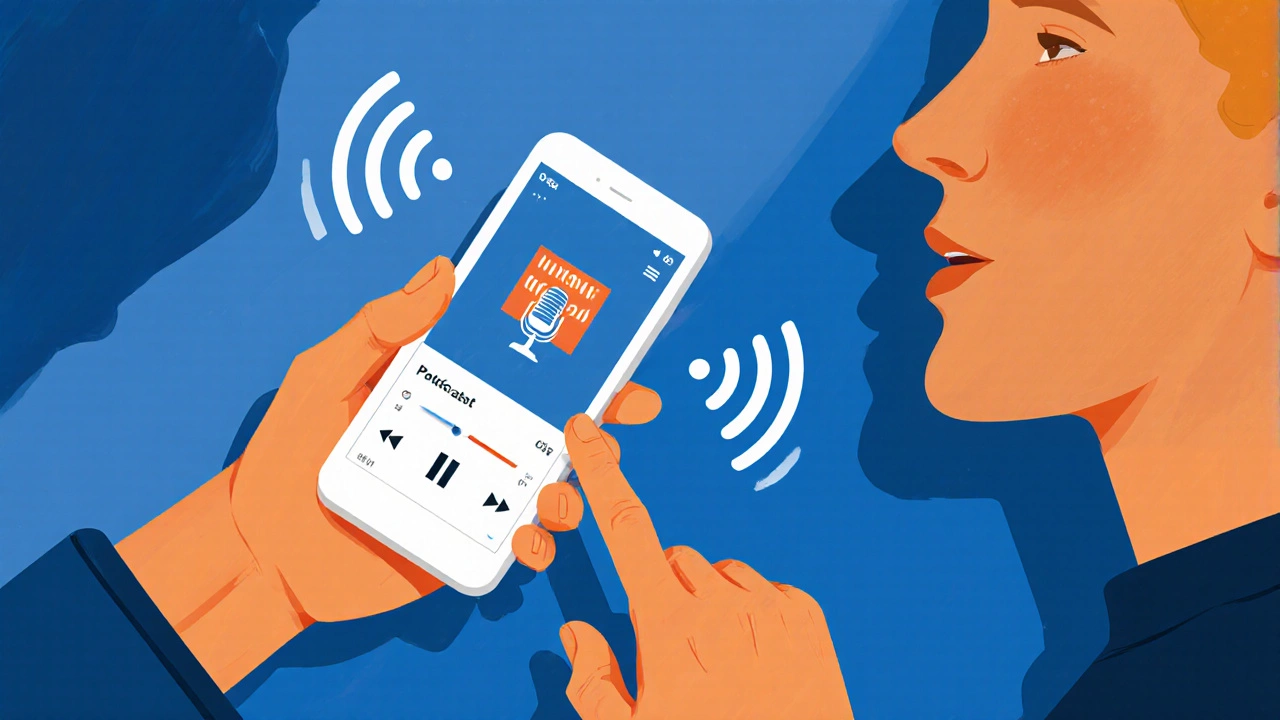Daily English Speaking Tracker
Build Your Speaking Habit
Track your daily practice to stay consistent. 10 minutes daily is better than 7 hours once a week.
Want to speak English without freezing up, stumbling over words, or worrying about grammar? You’re not alone. Millions of people around the world know English words but still can’t say them out loud without panic. The problem isn’t vocabulary. It’s not even grammar. It’s practice-the kind that actually builds muscle memory, not just memory.
Stop learning. Start speaking.
Most English learners spend years studying grammar rules, memorizing lists, and watching videos with subtitles. But when it comes time to talk, their brain goes blank. Why? Because they’ve trained their brain to understand, not to produce. Speaking isn’t something you learn from books. It’s a skill you build through repetition, like riding a bike or playing guitar. You don’t need to be perfect. You need to be consistent. Start today by saying something-anything-in English. Even if it’s just, “I’m going to the store.” Say it out loud. Do it again tomorrow. Then the next day. After a week, you’ll notice your mouth starts moving faster. Your tongue stops tripping. That’s progress.Shadowing: The secret technique most people ignore
Shadowing means repeating what you hear, right after you hear it. It’s not listening. It’s mimicking. Find a short audio clip-two to three minutes-of someone speaking naturally. It could be a podcast, a YouTube vlog, or a scene from a movie. Play it once. Then play it again and speak along, trying to match the rhythm, the pauses, the tone. Don’t worry if you sound weird. That’s the point. This works because your brain learns pronunciation and flow by copying someone who already does it well. Native speakers don’t think about grammar when they talk. They think about meaning. Shadowing trains your mouth to move the way native speakers move, without overthinking. Try it with The Daily podcast from The New York Times or BBC Learning English’s 6-Minute English. Do 10 minutes a day for two weeks. You’ll hear the difference in your own voice.Speak to yourself-even if it feels silly
You don’t need a conversation partner to start improving. Talk to yourself. Describe what you’re doing: “I’m making coffee. The water’s boiling. It smells like chocolate.” Talk about your day: “I felt tired this morning, but then I walked outside and the sun felt good.” This builds confidence and fluency without pressure. No one’s judging you. You’re not trying to impress anyone. You’re just training your brain to form sentences on the fly. After a few weeks, you’ll catch yourself thinking in English instead of translating from your native language. That’s when real fluency begins.Record yourself. Listen. Improve.
Grab your phone. Record yourself speaking for one minute. Don’t edit it. Don’t stop. Just talk. Then play it back. Don’t cringe. Listen. What do you hear? Do you say “um” every three seconds? Do you pause too long before simple words? Do you pronounce “th” as “t” or “d”? These are the tiny habits that make you sound non-native. You won’t notice them unless you hear yourself. Do this once a week. Compare your recording from Week 1 to Week 4. You’ll be shocked at how much you’ve improved-even if you didn’t feel like you were getting better. Progress isn’t always loud. Sometimes it’s quiet.
Find your people
You don’t need to join a fancy class. You need to find people who will let you speak, even if you mess up. Look for free language exchange groups. Apps like Tandem or HelloTalk connect you with native English speakers who want to learn your language. You talk for 15 minutes in English. They talk for 15 minutes in your language. No pressure. No grades. Just real talk. If you’re in Sydney, check out Meetup.com for English conversation circles. Libraries, community centers, and even coffee shops host weekly gatherings where people practice speaking. Show up. Say hello. Even if you only manage three sentences, you’ve done more than most people who sit at home watching videos.Use English in real life-every day
Change your phone’s language to English. Watch Netflix without subtitles. Read news headlines in English before you check your social media. Write your grocery list in English. Text a friend in English-even if it’s just “Hey, how’s it going?” The more English becomes part of your daily routine, the less foreign it feels. You stop seeing it as a subject you study. You start seeing it as a tool you use. That shift changes everything.Forget perfection. Aim for clarity
You don’t need to sound like a news anchor. You don’t need to use big words. You just need to be understood. A simple sentence spoken clearly is better than a complex one mumbled through. If you forget a word, describe it. Instead of saying “umbrella,” say “the thing you hold when it rains.” People will get it. And they’ll respect you for trying. Confidence comes from being understood-not from being perfect.
What to avoid
Don’t wait until you’re “ready.” There’s no such thing. You’ll never feel 100% prepared. Start now, even if you’re scared. Don’t compare yourself to others. Someone who’s been learning for five years might still sound hesitant. Someone who started six months ago might speak more clearly. Progress isn’t linear. It’s messy. Focus on your own path. Don’t over-rely on apps that quiz you on vocabulary. Knowing 500 words doesn’t mean you can say “I need help finding the nearest bus stop.” Fluency is about using words in real situations-not memorizing lists.Sample 30-day plan
- Days 1-7: Shadow 5 minutes daily. Talk to yourself for 3 minutes.
- Days 8-14: Record yourself once. Join a free online conversation group.
- Days 15-21: Change one app or device to English. Watch one YouTube video without subtitles.
- Days 22-28: Have one real conversation in English-even if it’s 10 minutes.
- Days 29-30: Listen to your first recording. Compare it to your last one.
Why this works
This approach works because it’s based on how humans actually learn language-not how textbooks say we should. Children don’t learn to speak by studying grammar. They hear, imitate, try, fail, and try again. You’re no different. Your brain doesn’t care if you’re “learning English.” It only cares if you’re using it. The more you use it, the more natural it becomes. The more natural it becomes, the less you think about it. And that’s when you start speaking like a native.How long does it take to speak English fluently?
There’s no fixed timeline. Someone who speaks 30 minutes a day, every day, can have clear, confident conversations in 3 to 6 months. Fluency doesn’t mean knowing every word-it means being able to express yourself without panic. The key is consistency, not speed. One hour a week won’t cut it. Ten minutes a day will.
Do I need to take an English course to improve?
No. Many courses teach grammar and vocabulary well, but they rarely give you enough real speaking time. If you’re paying for a course, make sure at least half the class is spent talking-not listening to lectures. Free options like language exchanges, shadowing, and self-recording often give you more speaking practice than expensive classes.
I’m too shy to speak. What should I do?
Start alone. Talk to your pet, your mirror, or your plants. Record yourself. Listen. Do it until you feel a little less uncomfortable. Then text someone in English. Then call a friend. Each small step builds courage. Shyness fades with action-not with motivation. You don’t need to feel brave to speak. You just need to speak.
How do I fix my accent?
You don’t need to eliminate your accent. You need to make your speech clear. Focus on pronunciation of key sounds like “th,” “v” vs. “w,” and word stress. Shadowing helps more than any accent course. Native speakers don’t mind accents-they mind confusion. If people understand you, your accent is a strength, not a flaw.
What’s the most important habit to build?
Speaking every single day-even for five minutes. It’s not about how much you say. It’s about not letting a day go by without using English out loud. Missing one day is okay. Missing two days in a row starts the habit to break. Keep the chain alive.
